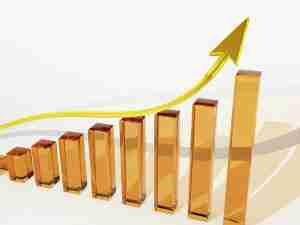Export-dependent Singapore has a strong warning for the rest of the world: The damage from a prolonged trade war will be severe.
While Southeast Asia has found some benefits from the deepening trade hostilities between the U.S. and China, the risk of a protracted conflict should have everyone worried about the state of the global economy, said Singapore Minister for Trade and Industry Chan Chun Sing.
“In the medium term, some countries benefit and some countries lose,” Chan said in an interview with Bloomberg Television’s Haslinda Amin in Singapore. “What is more worrying for everyone is that the entire global economy loses confidence.”
That would have “a huge impact” on the financial markets, and could slow down the entire level of economic activity, said Chan, who is one of several men seen as a leading candidate to become the next prime minister. “Then I think it will impact everyone negatively.”
It’s still early days and that worst-case scenario hasn’t materialized yet, the minister said. But it’s a worry for a small, open economy like Singapore’s, where exports amounted to 173 percent of gross domestic product last year. The city state has found itself in the crossfire as its No. 1 and No. 4 trading partners duel with tariffs, threatening to upend global supply chains.
Falling Sentiment
With the global economy already facing a potential cyclical downturn in the next few years, that would be made worse by a trade-related plunge in sentiment, Chan said.
“If that coincides with what many people are expecting in terms of a global downturn because of the technicalities, then I think we will be in for a rough ride,” he said.
There are already troubling signs in Asia. Surveys from China to Indonesia showed a decline in manufacturing sentiment in September, signaling weaker activity stemming from the U.S.-China tensions. Singapore’s purchasing managers index plunged to its lowest in more than two years.
Chan said Singapore’s economic fundamentals are “still alright” and fluctuations in the data can be expected.
“The PMI will go up and down,” he said. “There are some cyclical factors. The concern is the longer-term structural shifts.”
For now, the economy is still growing solidly, with economists in a Bloomberg survey forecasting expansion of about 3.2 percent this year, compared with 3.6 percent in 2017.
WTO System
Singapore’s warnings come as the world’s financial elite prepare to gather in the Indonesian island of Bali for the World Bank and International Monetary Fund’s annual fall meeting next week. Global trade risks will likely dominate talks, with IMF Managing Director Christine Lagarde already signaling she’s not as optimistic of the fund’s 3.9 percent global growth forecast for this year and next.
JPMorgan Chase & Co. is predicting an all-out trade war, with the U.S. slapping higher tariffs on all Chinese imports. Bank of America Merrill Lynch estimates a slowdown in China and weaker export growth will spill over to the rest of Asia and cut the region’s GDP growth rate by 30 basis points.
In order to weather that storm, Singapore sees two tasks at hand: keeping the global trading system open and working domestically to make the economy more resilient.
“We need to work with like-minded partners to uphold the global trading system, to continue to have the free-trade agreements either bilaterally or multi-laterally, to make sure that the global trading system remains open, free, and rules-based,” Chan said.
A collapse of that system could return the global economy to “where we were 100 years ago, near the Great Depression era when everybody thought that it was better for them to close their borders and work in isolation,” he said. That kind of scenario is a “great risk for the entire world,” he said.
Internally, the country of 5.6 million people needs to continue to “recycle our factors of production efficiently from the less-productive sectors to the more-productive sectors,” including through re-training workers for newer markets such as financial technology, and welcoming foreign workers who will contribute to the more productive parts of the labor market, he said.








